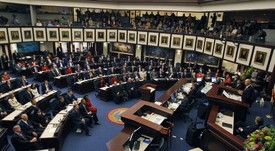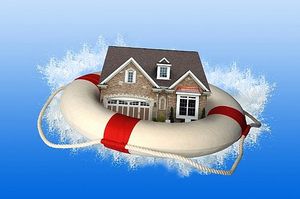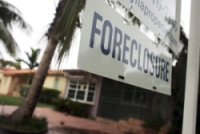 The real estate boom has come and gone. Today’s market, driven by short sales, looks much different than it did five years ago, during the peak of the boom.
The real estate boom has come and gone. Today’s market, driven by short sales, looks much different than it did five years ago, during the peak of the boom.
The real estate boom was created in large part thanks to banks and mortgage companies that competed fast and hard to attract borrowers. Gone were the days of requiring borrowers to have good credit and cash down payments. That traditional model was replaced by aggressive, accommodating and very creative banks and mortgage lenders. These aggressive institutions created new loan programs revolving around “stated income” or “no income verification” loans, as well as 100% financing, and adjustable rate loans with introductory, ultra low “teaser” interest rates.
The thought process, at the time, was that no one would lose money on investing on people’s homes. After all, and at the time, the country was experiencing record growth in the real estate sector. It was not uncommon to realize double digit growth/profits in as little as several months. In other words, how could any of the parties to the transaction get hurt with the double digit level of appreciation that the market was enjoying at the time. The speculative boom was in full force.
Well, today we know that the madness came to a screeching stop, and it crashed the nation’s economy with it.
But the collapse of the real estate market has also brought fresh opportunities to the savvy investor or purchaser.
Short sales now dominate the market. Where many purchasers had purchased real estate with no money down, it is not surprising that many of them find themselves in a precarious position today. They are upside down in their loan, owing more to their mortgage lender than their property is worth.
If those borrowers are fortunate enough to find a purchaser who can qualify for a traditional, fully documented mortgage loan under the new, and tighter, lending guidelines, then they need to push for a short sale approval.
A short sale is a transaction the proceeds of the sale will not be sufficient to cover the outstanding debt and closing costs.
However, the short sale process can often times be a maddening one that takes a lot of time. Indeed, it takes on average 501 days to complete a short sale in South Florida. And you will often times need to retain the services of a short sale specialist to held navigate this issue.
—–
EXTENDED BODY:
Consider Your Options. Contact Us Today.
We are certainly in difficult times. At Alvarez & Barbara, LLP, we understand all of our client’s individual needs and pride ourselves in providing high quality service.
Call us today toll free at 1-866-518-2913 or at 305-263-7700.









